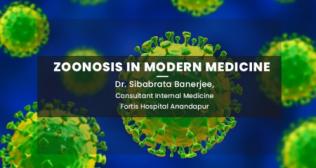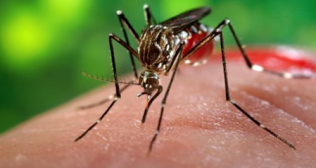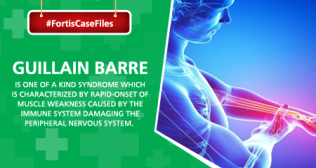Psoriatic Arthritis - Symptoms, Causes & Treatments
Overview
Psoriatic arthritis is a type of arthritis that’s linked with psoriasis and causes inflammation in and around the joints. This condition results in the lining around the joints to become painful while also causing stiffness and swelling. Essentially categorized as an autoimmune disease, this condition is a chronic and progressive in nature which basically entails that it can affect an individual over a long period of time with high odds of the symptoms worsening over time.
It can strike any part of the body and affect people of any age or gender. However, in most cases, psoriatic arthritis afflicts adults more as compared to younger people. Although it usually afflicts individuals with a pre-existing psoriasis condition, there are a small minority of people who have developed the arthritic symptoms before the onset of psoriasis as well. In some cases, affected individuals will never develop the skin condition either. According to the National Psoriasis Foundation, it has been reported that nearly 30 percent of individuals with psoriasis usually go on to develop psoriatic arthritis.
Further, studies have reported that people affected with psoriasis might even have other forms of arthritis including osteoarthritis or rheumatoid arthritis. That being said, it needs to be mentioned that these diseases aren’t directly connected to psoriasis.
Symptoms
Psoriatic arthritis is a debilitating condition that can wreak havoc on the rest of the body. When it affects the hands, in particular, it can cause disruption to daily life as it severely limits the affected individual’s mobility. Symptoms can vary from person to person. Symptoms of psoriatic arthritis may include:
- Thick, red, scaly rashes on the skin
- Thick, discolored, and pitted fingernails
- Severe pain and stiffness in and around the joints
- Swelling of the whole finger or the toe (dactylitis)
- Pain or tenderness in the heel of the foot – owing to inflammation where the Achilles tendon connects to the bone
- Joints that feel warm/hot
- Decreased mobility
- Fatigue
- Stiffness around the back/neck region caused by inflammation in the spine (spondylitis)
- High blood pressure and high cholesterol
- Pain and stiffness in other areas including the buttocks, knee, chest, and hip regions
Furthermore, individuals affected with psoriatic arthritis can develop the following complications as well.
- Eye issues – such as conjunctivitis or uveitis
- Heart disease
- Arthritis mutilans – a condition that usually attacks the small bones in the hands and fingers causing deformity and disability
- Inflammatory bowel disease – including ulcerative colitis or Crohn’s disease
- Certain types of cancer – Lymphoma
- Type 2 Diabetes
One needs to keep in mind that some of the symptoms of psoriatic arthritis may resemble similar health conditions. Which is why it’s imperative that an individual visits his/her doctor immediately for a diagnosis if any of the symptoms are visible.
Risks
Although the precise cause of psoriatic arthritis remains unknown, certain factors may put an individual at a higher risk. They are as under:
- Overall levels of immunity
- A genetic predisposition
- Smoking
- Excessive alcohol consumption
- Being overweight or obese
- Blood pressure problems
Causes
Although there’s no clear indication of what exactly triggers the inflammation in psoriatic arthritis, research has shown that a combination of both genetic and environmental factors are responsible.
Studies have revealed that individuals affected with psoriatic arthritis usually have a close relative – such as a parent or sibling – already afflicted with the disease. In these cases, it has been discovered that certain inherited gene mutations appear to be associated with psoriatic arthritis. It has also been suggested that a certain infection or event can act as a trigger in people who are at risk.
Treatment
Before treatment, doctors usually ask individuals about their medical history and conduct a physical examination. Because of the lack of a specific test for detecting psoriatic arthritis, the patient’s skin will be assessed for indications of psoriasis. This will be followed up with an array of blood tests such as the erythrocyte sedimentation rate (ESR) test as well as x-rays.
Currently, there is no cure for psoriatic arthritis. But with the help of medicines, one can control flare-ups, reduce pain and inflammation. Non-steroidal anti-inflammatory drugs (NSAIDs) go a long way in helping alleviate the pain and stiffness associated with inflammation that occurs in the lining of the joints.
Certain steroids such as prednisone have also known to be effective as they help suppress the immune system and lessen the inflammatory process. DMARDs or – disease modifying anti-rheumatic drugs – such as methotrexate, sulfasalazine, and leflunomide has proven as an effective measure to reduce symptoms of inflammation, especially in the arm and leg joints. Biologic medicines including etanercept, infliximab, and adalimumab have also been proven to decrease inflammation and for treating severe psoriatic arthritis.
Surgery has also been known to be effective in treating the problems of psoriatic arthritis especially in cases where the deformities are disabling or the pain is excruciating.
Other forms of treatment may include:
- Exercising regularly
- Moisturizing the hands on a daily basis
- Treating fungal nail infections
- Eating a healthy, balanced diet
- Maintaining a healthy weight
- Ultraviolet light treatment (UVB or PUVA)
- Using a mattress that gives support
- Maintaining a good posture
- Splints to improve the function of a damaged joint
- Heat and cold therapy
- Keeping tension and anxiety under check
- Increasing daily mobility
- Physical therapy in order to improve and maintain joint and muscle function
- Management of psoriasis skin rash
With the aid of proper treatment, affected individuals can slow down the progression of the disease and prevent permanent joint damage.















}}drupal-data/images/blog-lists.png)


